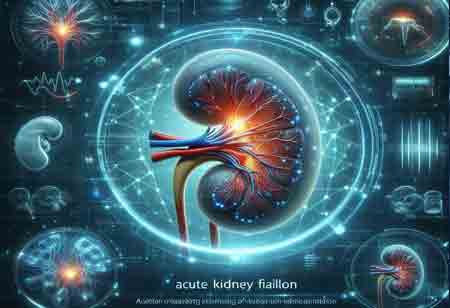Exploring the Role of Combination Therapy in Hypertension
Combination therapy enhances the average drop in blood pressure and achieves blood pressure management faster while maintaining tolerability.

By
Medical Care Review | Thursday, October 17, 2024
Stay on top of your health and well-being with exclusive feature stories on the top medical clinics and treatment centers, expert insights and the latest news delivered straight to your inbox. Subscribe today.
Combination therapy enhances the average drop in blood pressure and achieves blood pressure management faster while maintaining tolerability.
FREMONT, CA: The number of people having trouble with their blood pressure is increasing nowadays. If one medication fails to control their blood pressure, their doctor may recommend a combination treatment for hypertension. Studies have shown that combination medication improves blood pressure control for many patients over single-drug therapy.
Several medications are used in combination to treat high blood pressure. The goal is clear: to control hypertension, and patients will reduce their risk of heart disease.
Combination treatment for high blood pressure
Combination treatment involves adding another type of blood pressure medication to the first to boost its effectiveness. Many patients with mild high blood pressure react to a single drug. It may take several attempts to identify the most effective medicine. However, a single medicine occasionally is insufficient to regulate excessive blood pressure. The doctor may increase the dose or modify the medication, but the blood pressure remains elevated. At that point, doctors may add a second medication.
Patients with high blood pressure may require combination treatment, even initially, to bring it down into the normal range. Combination hypertension treatment is tailored to the person. It provides the most effective blood pressure control while causing the fewest negative effects.
What combinations of medications are used to treat high blood pressure?
Hypertension is treated with various medication combinations and dosages. In combination, lower doses of one or more medications can help reduce negative effects. Thiazide diuretics can be used alone to treat hypertension. However, low-dose diuretics can be combined with other drugs, like beta-blockers. The diuretic has fewer negative effects when used in combination with other drugs. It also increases the blood pressure-lowering impact of the other medicines.
Diuretics are combined with other blood pressure medications. For example, a diuretic may be added if the patient has high blood pressure and retains fluid. ACE inhibitors or angiotensin receptor blockers are frequently beneficial when taken with other types of medicines.
The primary blood pressure medication classes are:
Thiazide diuretics: Diuretics eliminate salt and extra water from the body.
Angiotensin II receptor blockers (ARBs): ARBs block the effects of angiotensin.
Angiotensin-converting enzyme (ACE) inhibitors: ACE inhibitors are commonly used in persons with diabetes or heart disease. They reduce blood pressure by blocking the formation of angiotensin in the body. Angiotensin is a hormone that causes blood vessels to contract, raising blood pressure.
Calcium channel blockers: These reduce blood pressure, slow the pulse, and cure arrhythmias. They can also relieve angina and relax the heart muscle.







